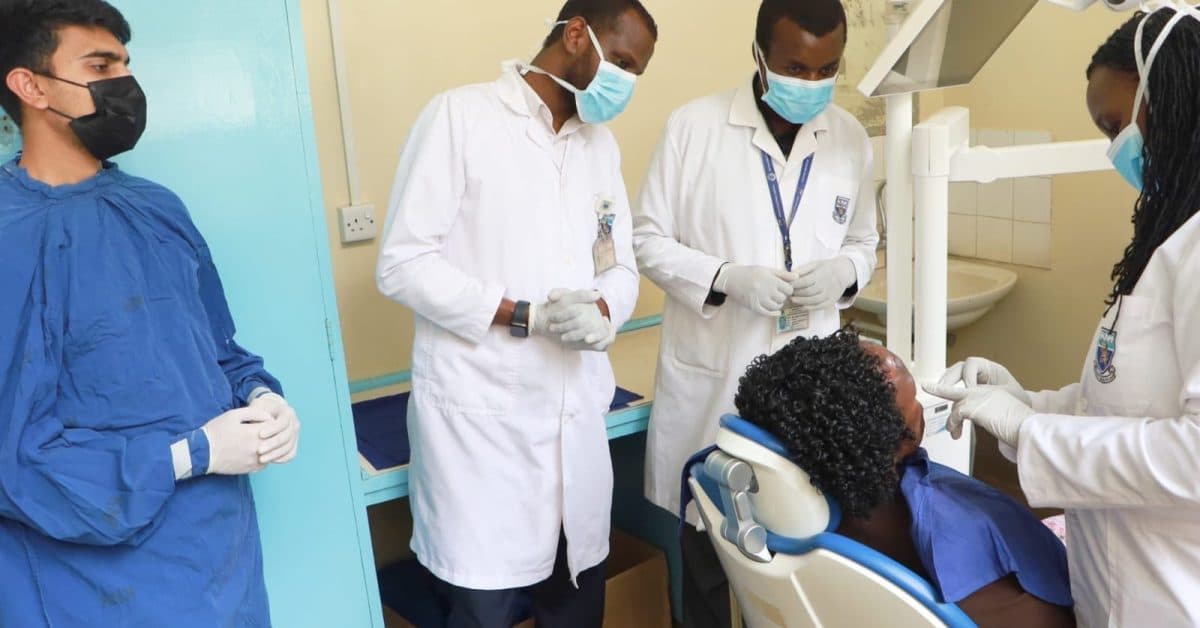We're loading the full news article for you. This includes the article content, images, author information, and related articles.
A groundbreaking procedure at Kenyatta National Hospital restores hope for patients needing complex reconstructive surgery, ending an eight-year ordeal for a 51-year-old cancer survivor.

Surgeons at Kenyatta National Hospital (KNH) have successfully performed Kenya's first-ever zygomatic implant-retained nasal prosthesis surgery, marking a significant milestone in the nation's medical capabilities. The complex, six-hour procedure, conducted on Wednesday, September 10, 2025, restored the nose of 51-year-old Dormitila Yula, who had spent eight years concealing her face behind bandages following a battle with cancer. This achievement not only highlights the advanced skills of local medical teams but also signals a new era for specialized reconstructive care within Kenya, potentially reducing the need for patients to seek such treatment abroad.
Ms. Yula's ordeal began in 2017 with what appeared to be a minor pimple on her nostril. The blemish, however, developed into a persistent wound, leading to a devastating diagnosis of squamous cell carcinoma, a form of skin cancer, in 2020. To save her life, Ms. Yula underwent an intensive treatment regimen at KNH, which included two major plastic and vascular surgeries, 33 sessions of radiotherapy, and 40 days of hyperbaric oxygen therapy. While the treatments successfully rendered her cancer-free, the life-saving interventions left her with significant facial disfigurement, profoundly affecting her confidence and ability to engage in community life. For years, she felt compelled to cover her face in public.
Recognizing the deep psychological impact of her condition, a multidisciplinary team at KNH convened in 2024 to devise a solution to restore Ms. Yula's appearance and quality of life. The team determined that a conventional skin graft would be insufficient and opted for a cutting-edge procedure previously unavailable in Kenya. The chosen technique involved creating a custom-made silicone prosthesis, perfectly moulded to recreate the natural contours of her nose. This prosthesis was anchored securely to her cheekbones using zygomatic implants—titanium screws that leverage the dense bone of the zygoma for stability.
The intricate operation required two months of meticulous virtual planning, utilizing 3D imaging and digital modelling to map Ms. Yula's facial anatomy and ensure the precise placement of the implants. The successful six-hour surgery was led by a team of highly skilled Kenyan specialists, including consultant maxillofacial surgeons Dr. Adeline Vilembwa and Dr. Andrew Okiriamu, and consultant prosthodontist Dr. Margaret Mwasha. Earlier stages of her care also involved plastic surgeon Dr. Benjamin Wabwire and Dr. Loice Kahoro.
This landmark surgery is more than an individual triumph; it is a testament to the growing expertise within Kenya's public healthcare system. It demonstrates KNH's capacity to handle highly complex medical challenges that were once the preserve of hospitals in more developed nations. The success of this procedure, alongside other recent surgical milestones at the hospital—such as the world's first pediatric facial reconstruction on a 7-year-old bandit attack victim and a record-setting gigantomastia surgery—cements KNH's position as a leading centre for specialized surgery in East and Central Africa. By offering such advanced procedures locally, Kenya can curb medical tourism, save patients significant costs, and build a sustainable, self-reliant healthcare ecosystem.
Overjoyed with the outcome, Ms. Yula expressed profound gratitude to the KNH team. "KNH has given me a new lease on life," she stated in a communication released by the hospital on Tuesday, October 28, 2025. "For eight years, I hid my face in shame. But now, I have a new nose. I can walk freely, work, and sing in my church choir again." Her story is a powerful symbol of medical innovation and human resilience, offering hope to countless others awaiting complex reconstructive care.
Keep the conversation in one place—threads here stay linked to the story and in the forums.
Other hot threads
E-sports and Gaming Community in Kenya
Active 8 months ago
The Role of Technology in Modern Agriculture (AgriTech)
Active 8 months ago
Popular Recreational Activities Across Counties
Active 8 months ago
Investing in Youth Sports Development Programs
Active 8 months ago